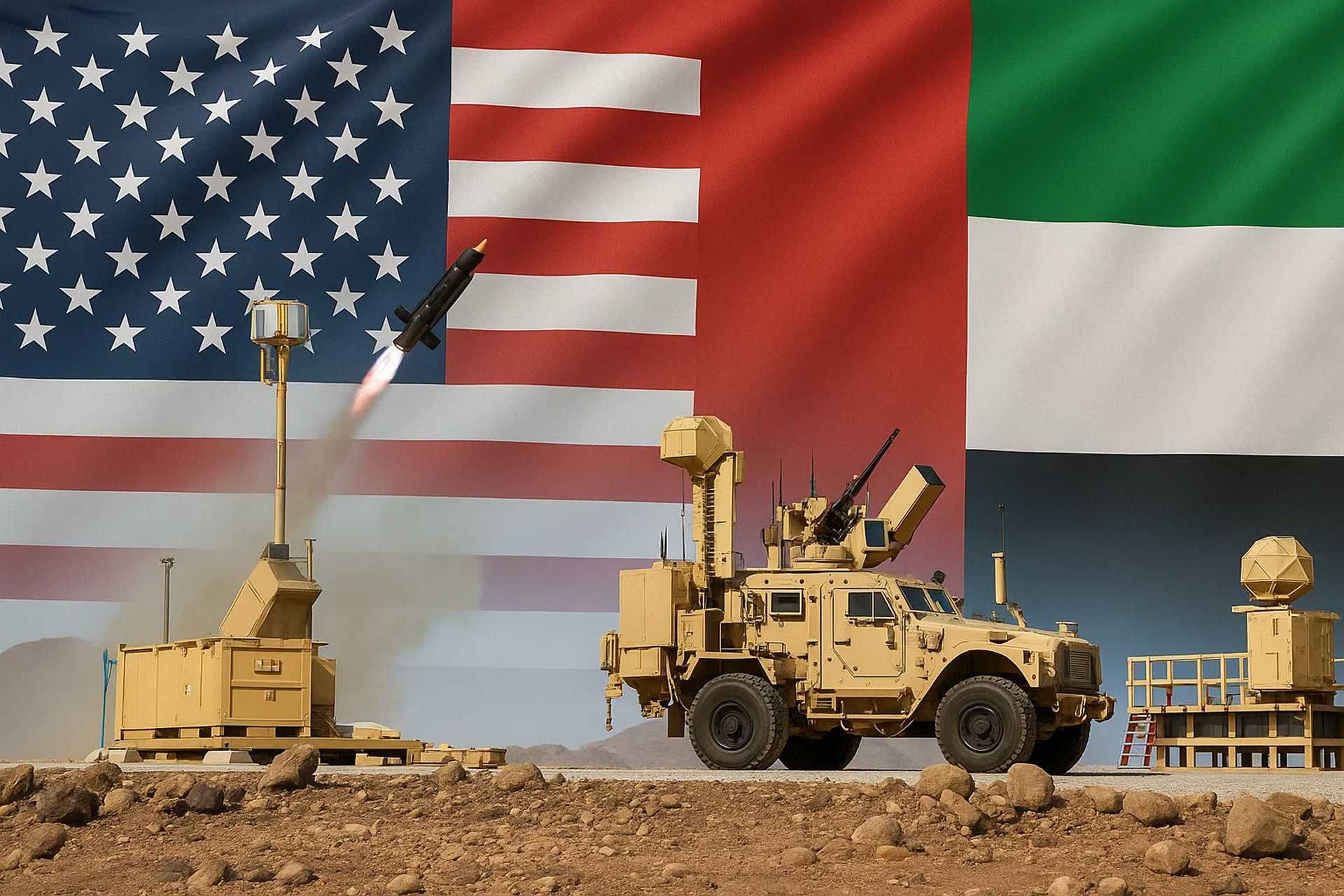Breaking News
U.S.-UAE Defense Alliance Expands with Local Coyote Counter-Unmanned Aerial System Production.
Citing information released by the Tawazun Council’s official X account on May 15, 2025, the United Arab Emirates (UAE) has launched a significant new defense industry venture in partnership with Raytheon, an RTX business. Together, they have established a 21,500-square-foot facility in Abu Dhabi’s Tawazun Industrial Park, which will serve as a regional hub for the assembly and testing of the Coyote Counter-Unmanned Aerial System (C-UAS). This advanced interceptor system represents the cutting edge of modern air defense technology and reflects the UAE’s accelerated efforts to build a sustainable, self-reliant military-industrial base capable of addressing emerging aerial threats, particularly those posed by unmanned systems.
Follow Army Recognition on Google News at this link

Developed by U.S. defense leader Raytheon and now produced in the UAE, the Coyote Counter-UAS system symbolizes the deepening strategic defense partnership between the two nations, enhancing regional security through cutting-edge drone interception technology. (Picture source: Raytheon image with editing of Army Recognition Group)
The Coyote C-UAS (Counter-Unmanned Aerial System), developed by the American Company Raytheon, is a compact and cost-effective missile system engineered specifically to combat the growing threat of unmanned aerial vehicles. What sets the Coyote apart is its modularity and adaptability. It can be configured with kinetic warheads for physical destruction or equipped with non-kinetic payloads such as electronic warfare systems to disrupt or disable drones without direct impact. The latest iteration, the Block 2 variant, features enhanced propulsion and advanced sensors, giving it the capability to intercept targets at higher altitudes and longer ranges with improved precision. This makes it particularly effective against both lone drones and sophisticated swarm attacks, which are increasingly used in modern conflicts to overwhelm conventional air defenses.
The Coyote C-UAS counter-drone system is designed for quick deployment from mobile and fixed launchers, and it integrates seamlessly with existing radar and command-and-control systems. It has been extensively tested and used by U.S. military forces, proving its reliability in real-world operations. For the UAE, hosting production of this versatile system is a strategic asset that enhances its ability to respond swiftly to aerial threats while also developing long-term industrial autonomy.
This project is a cornerstone in the UAE's (United Arab Emirates) broader initiative to localize its defense capabilities and reduce dependency on foreign military imports. The country’s defense budget, which reached $ 23.2 billion in 2023, reflects its readiness to invest in transformative defense technologies. The new facility will also benefit from the involvement of local industry leaders such as EDGE Group’s EPI, which is already producing prototype components for the Coyote system. This integration of international expertise with domestic manufacturing marks a turning point for the UAE's defense ecosystem.
Beyond the immediate military applications, the new Coyote production hub offers several strategic advantages. It strengthens the national defense supply chain, mitigates risks associated with global disruptions, and fosters high-value job creation in sectors such as aerospace engineering and advanced manufacturing. It also positions the UAE as a key regional center for defense technology, capable of supporting both national and allied defense needs.
This development also reinforces the long-standing defense relationship between the United States and the UAE, which has matured into a robust strategic partnership involving joint exercises, arms sales, and increasingly, industrial collaboration. Over the past decade, the UAE has emerged as one of the largest export markets for U.S. defense equipment in the Middle East. Bilateral agreements have facilitated the transfer of advanced military systems such as the THAAD missile defense system, F-16 fighter jets, and Apache helicopters, all of which underscore the high level of trust and interoperability between the two nations.
More recently, this relationship has evolved from a traditional supplier-client dynamic to a model of co-production and technology sharing. The Coyote facility is a prime example of this shift, reflecting Washington’s support for regional allies that are investing in their own defense industries. It also signals confidence in the UAE’s ability to maintain stringent quality, security, and regulatory standards required for the manufacturing of sensitive defense systems.
Concurrently, the UAE’s own defense industry is rapidly expanding on the global stage. Led by the EDGE Group, which was ranked among the top 25 defense companies globally, the country is aggressively marketing its defense solutions to international buyers. In recent years, the UAE has signed export agreements for armored vehicles, loitering munitions, naval systems, and small arms with countries across Africa, Asia, and South America. This export momentum highlights the UAE’s transformation from an importer of defense technologies to an emerging supplier and partner in global defense innovation.
In light of escalating drone threats and the increasing use of unmanned systems in regional conflicts, the UAE’s decision to localize Coyote production is both timely and strategically astute. It enhances national security while advancing the country’s long-term vision for an innovative, resilient, and diversified defense industry. The partnership with Raytheon sets a powerful example of how global collaboration and local capability development can come together to meet the complex challenges of modern warfare, while also reinforcing the UAE’s ambitions to become a key player in the international defense market.





























